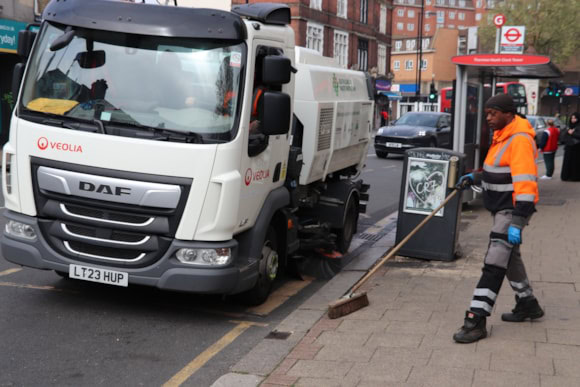That was the pledge of the Greater Manchester Waste Disposal Authority, made shortly after confirmation by Defra of a 100 million award to encourage private investment in the city’s waste disposal services (see letsrecycle.com story).
” Today’s award does not take away the challenge, but it does provide a significant help.“
– Cllr Neil Swannick, GMWDA
Welcoming the Private Finance Initiative boost to its forthcoming waste disposal contract, the partnership of nine Manchester councils said it would push for a 50% recycling rate led by a mechanical biological treatment (MBT) approach.
Cllr Neil Swannick, the authority’s chairman, said the PFI award was “great news” for the people of Manchester. But he warned: “Reducing and diverting our waste from landfill within a very short time frame presents a considerable challenge.”
The GMWDA provides waste disposal services for 958,000 households in Bolton, Bury, Manchester City, Oldham, Rochdale, Salford, Stockport, Tameside and Trafford. The authority is responsible for 1.5 million tonnes of household waste each year – about 5% of all the waste produced by English householders.
Cllr Swannick said: “Today’s award does not take away the challenge, but it does provide a significant help in developing the world-class solution that people in Greater Manchester rightly demand at a price they are able to pay.”
MBT
MBT is a process being taken up by councils all over England as a possible answer to the reduction of the amount of household waste being sent to landfill. As well as physical separation processes to remove recyclable materials such as metals, MBT employs drying and composting procedures to reduce the biodegradability of mixed waste and produce either a fuel for generating energy or a low-grade landfill cover.
The GMWDA, like all waste disposal authorities in England, has been prompted to cut landfill by the government’s Landfill Allowance Trading Scheme, which will make it financially problematic for councils to continue to send present levels of biodegradable household waste to landfill from April 2005 (see letsrecycle.com report).
Cllr Swannick said: “Our recycling and composting rate has more than doubled in the last two years and we are on target to meet our 20% target in 2005/6. But we need to divert the rest of our biodegradable waste from landfill if we are to avoid the 150 per tonne penalties in the new Landfill Allowance Trading Scheme. This PFI funding will allow for capital investment in a new waste disposal infrastructure.”
MBT plants can require immense capital investment, and speaking to letsrecycle.com, the GMWDA’s director of procurement, Tim Judson, said the contract involved would be worth billions of pounds. Mr Judson, who is on secondment from Defra, said: “A good estimate would be 2.5 billion for this contract, but including inflation it could be worth as much as 4 billion in the end.”
But, while immense amounts of taxpayers’ money is at stake in opting for the new waste treatment technology, little is yet known concerning the market availability for the end “product” of MBT plants. Manchester’s strategy is that its MBT plants will be “producing a Refuse Derived Fuel that can be used in industry and power generation as a substitute for fossil fuels”, Cllr Swannick said.
Work force
Whatever the option for the proposed MBT system, bidders for Manchester’s waste contract, which is expected to be put out to tender in the next few weeks, will have to offer ideas for the use of the council’s arms-length waste management company.
| Related links: |
Greater Manchester Waste, which was formed in 1986, is thought to be the UK’s eighth largest waste management firm. Under a new contract with the private sector from 2007, the firm could be sold to a successful bidder or retained as a sub-contractor.
Cllr Swannick explained: “In the coming months we will not only be seeking out the best that the private sector has to offer and exploring how to optimize the use of the substantial assets and the employment of our local 800-strong work force, but we will also be seeking to explore fully how best to recover value from the materials currently in our waste stream.”









Subscribe for free